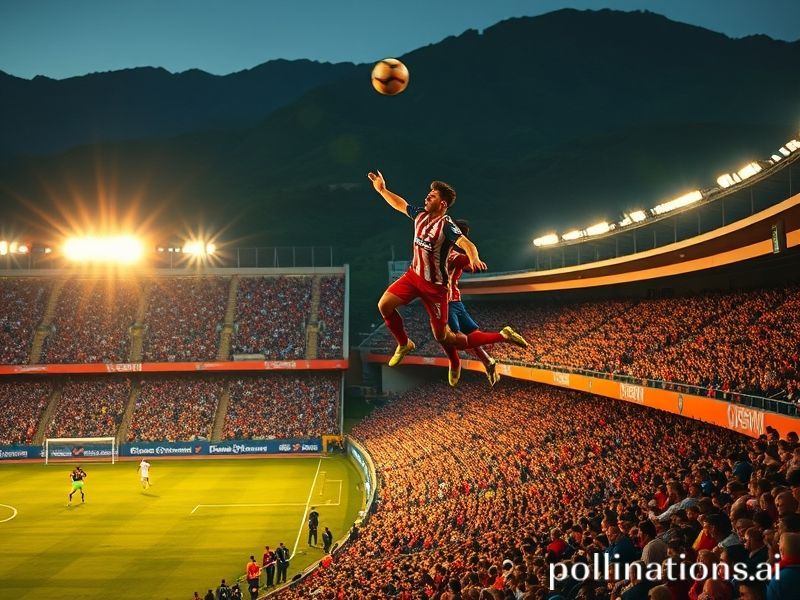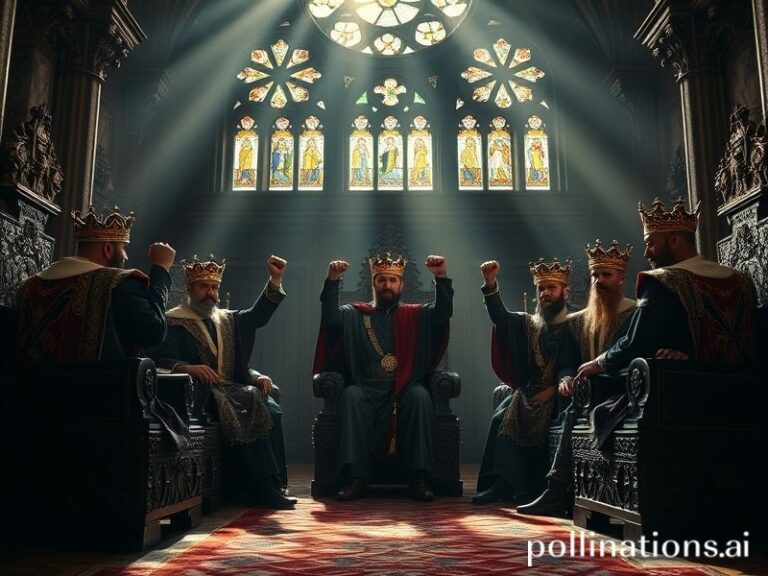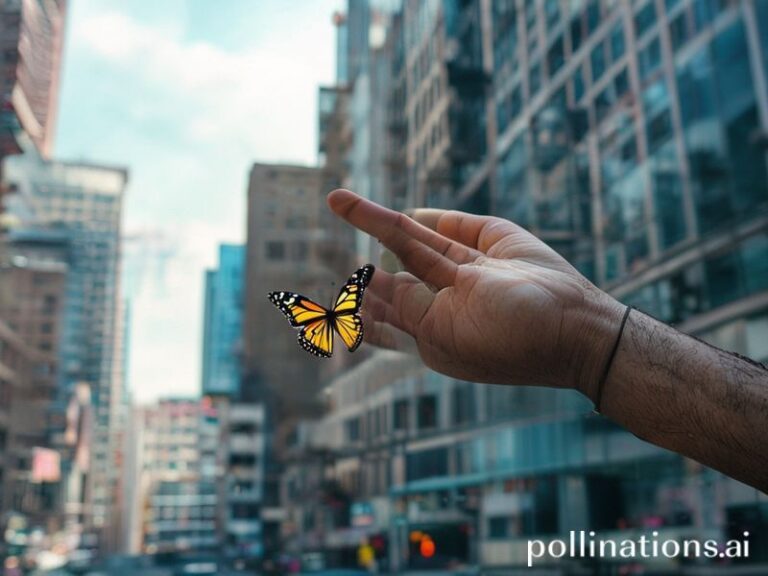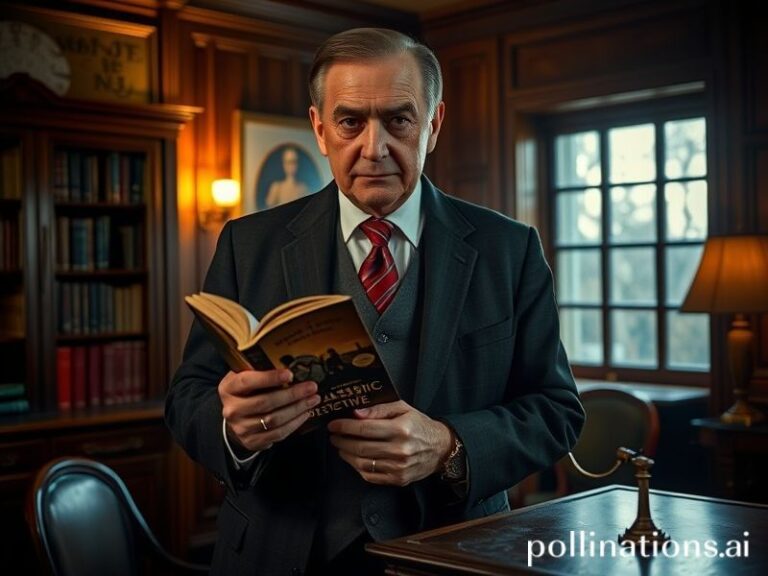Girona vs Espanyol: When a Spanish Football Match Becomes a Global Parable of Oil Money, Debt, and the End of Neighborhood Pride
GIRONA, Spain – In a corner of Europe that still believes lunch is a three-act tragedy and dinner begins when the New York stock exchange is already asleep, two football clubs met on Sunday whose rivalry is best measured not in blood feud but in mutual existential dread. Girona FC versus RCD Espanyol is, on paper, a modest mid-table La Liga scuffle. Yet from a safe distance—say, a bar stool in Buenos Aires or a Tokyo data center streaming illicit pixels—it looked suspiciously like a referendum on modernity itself.
One club, Girona, is bankrolled by City Football Group, the petro-dollared Matryoshka doll of global sport. The other, Espanyol, is the last proud Catalan outfit still wearing the name Spain gave it, like a man insisting on a necktie at a nudist colony. Their match finished 2-1 for the home side, but the real scoreboard ran across Bloomberg terminals: CFG inches closer to turning Catalonia’s flower-bedecked jewel into a satellite campus; Espanyol edges nearer to that uniquely Iberian purgatory known as “administración concursal.” Translation: they’re broke, but politely.
From Lagos to Lagos (the one in Portugal, not Nigeria—geography is cruel), viewers asked the same question: why should anyone outside the Iberian Peninsula care? The answer is as dispiriting as it is universal. Girona vs Espanyol is a parable about soft power wearing football boots. CFG, backed by Abu Dhabi’s sovereign wealth, has quietly assembled a portfolio that stretches from Melbourne to Mumbai. Each club is a node in a distributed empire, the sporting equivalent of those Starbucks on every corner selling the same lukewarm globalization. Girona’s slick passing triangles aren’t tactics; they’re advertising jingles.
Meanwhile, Espanyol clings to the twentieth-century notion that a club should represent a neighborhood, not a hedge-fund spreadsheet. Their fans wave flags that say “Espanyol és el nostre orgull” (Espanyol is our pride), unaware that pride doesn’t service debt. The club’s Chinese ownership—remember when everyone thought Beijing would buy the world?—has already offloaded assets faster than a fire sale in a fireworks factory. If CFG is imperialism in cleats, Espanyol is the last artisanal bakery being steamrolled by a Walmart.
The irony, of course, is delicious enough to spread on toast. The same Catalan independence movement that once boycotted Espanyol for being “too Spanish” now watches Girona morph into a Gulf emirate’s hobby horse. Somewhere in a Brussels think-tank, a policy wonk is updating a PowerPoint titled “Post-National Football and the Collapse of Civic Identity.” Slide 17 is just a crying emoji.
Yet global audiences keep clicking, because despair is best diluted with spectacle. In Seoul, a 19-year-old streams the match on two phones—one legal, one decidedly not—while betting micro-stakes he can’t afford to lose. In Toronto, a data analyst tracks expected-goals models like they’re Tinder matches. The planet’s collective attention span has shrunk to 90 minutes plus stoppage time, and the algorithm knows it. Girona’s third goal difference this season now matters more to a cryptocurrency trader in Singapore than the price of rice in Jakarta. Priorities, darling.
Back in Montilivi stadium, the away end unfurled a banner: “Ni petroli ni vostres diners, som lluita i coratge.” Translation: “Neither oil nor your money, we are struggle and heart.” Noble, if naïve. The banner was printed on polyester made from—you guessed it—petrochemicals. Somewhere, a polar bear weeps into its dwindling ice floe.
When the final whistle blew, Girona moved within touching distance of Champions League lucre, that gilded carousel where the rich spin faster and the poor get flung off. Espanyol’s players applauded their fans like men thanking the firing squad for good aim. Both sets of supporters filed out into a city where medieval walls now house artisanal gin bars, a place history forgot to evict.
So, what did we learn? That football is now just another supply chain, and we are all downstream. The world tunes in for tribal catharsis and gets venture capital. Somewhere in the metaverse, a digital Girona will soon play a virtual Espanyol for NFT bragging rights, and we’ll call it progress.
As the floodlights dimmed, a lone Espanyol fan lingered, scarf wrapped like a noose of loyalty. He lit a cigarette—tobacco, the original addictive export—and stared at the scoreboard already resetting for the next global product launch. The smoke curled upward, indistinguishable from the exhaust of passing tour buses. Inhale. Exhale. Repeat until relegation.







